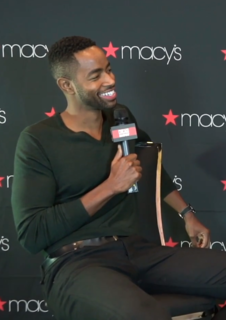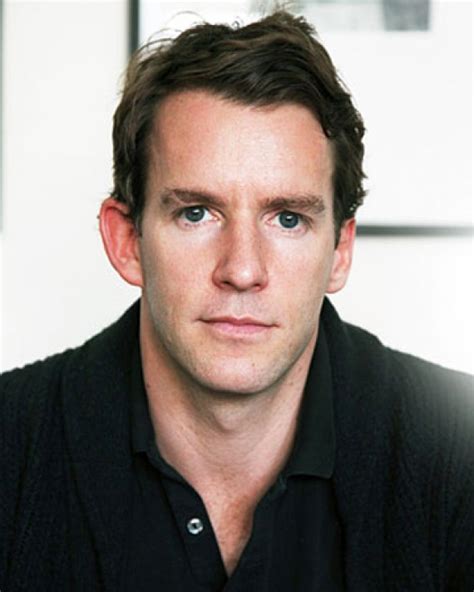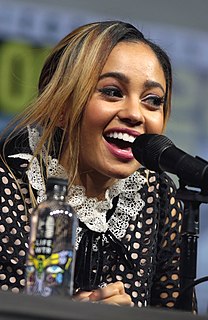A Quote by Jay Ellis
It's like one of the best things that can ever happen to you as an actor: to have your story reach people, even if they don't look like you and even though they may not be able to identify with a black male; they can still identify with what's happening to you.
Related Quotes
My mom is Jamaican and Chinese, and my dad is Polish and African American, so I'm pretty mixed. My nickname in high school was United Nations. I was fine with it, even though I identify as a black woman. People don't realize it hurts my feelings when someone looks at my hair or my eyes, and says, "But you're not actually black. You're black, but you're not black black, because your eyes are green." I'm like, "What? No, no, I'm definitely black." Even some of my closest friends have said that. It's been a bit touchy for me.
Once you allow yourself to identify with the people in a story, then you might begin to see yourself in that story even if on the surface it's far removed from your situation. This is what I try to tell my students: this is one great thing that literature can do - it can make us identify with situations and people far away.
I'm lucky because I have so many clashing cultural, racial things going on: black, Jewish, Irish, Portuguese, Cherokee. I can float and be part of any community I want. The thing is, I do identify with being black, and if people don't identify me that way that's their issue. I’m happy to challenge people's understanding of what it looks like to be biracial, because guess what? In the next 50 years, people will start looking more and more like me.
If you don't know about the 'black male code,' you should. It's something black boys learn early, even before adolescence. It goes, in part, like this: Even though you're not a criminal, some people assume you are, especially if you're wearing certain clothes. Never argue with the police, but protect your dignity and take pride in humility.


































